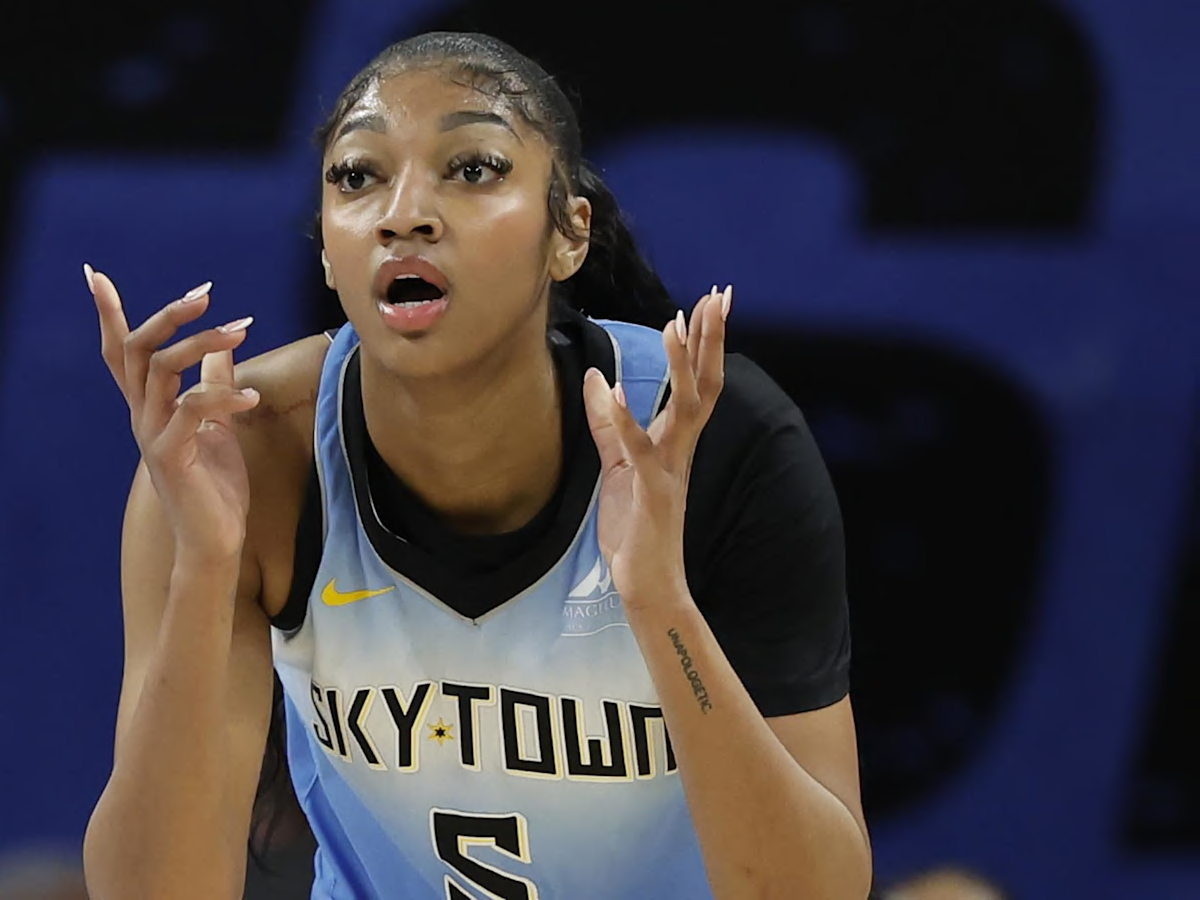Angel Reese, a rising star in women’s basketball and one of the most dominant forces in the game, has just made a statement that is sending ripples across the sports world. In a bold and groundbreaking declaration, Reese threatened to strike if the WNBA does not significantly increase its player salaries. This unexpected move has sparked intense discussions about pay equity, gender inequality, and the treatment of female athletes in a male-dominated sports industry.
Reese, who has been a standout player in the NCAA and has garnered significant attention for her performances on and off the court, has used her growing influence to challenge the financial landscape of the WNBA. With her newfound platform, she is not afraid to call out the disparities that have long existed between men’s and women’s professional basketball leagues, particularly in terms of pay.
The WNBA has long been criticized for offering far lower salaries compared to the NBA, despite the fact that its athletes are just as talented, hard-working, and entertaining. While NBA players regularly sign multi-million-dollar contracts, WNBA players often make a fraction of that amount, leading to concerns that they are not being fairly compensated for their contributions to the sport.
Angel Reese’s statement, “Pay us more or we won’t play,” may have shocked many, but it reflects the frustration and growing demand for change from women athletes across various sports. Reese’s stance isn’t just about her own paycheck; it’s about the future of women’s sports as a whole. She’s not only demanding more money for herself but also advocating for the many other players who struggle to make ends meet, even while dedicating their lives to the game.
For Reese, this is personal. As a player who has faced countless challenges and criticisms throughout her career, from being judged for her age and gender to being undervalued by the sports industry, this threat to strike is her way of taking control and pushing for systemic change. She understands the value of her skill set and is making it clear that the current pay structure is no longer acceptable.
In her statement, Reese emphasized that the disparity between the NBA and WNBA pay is not just a financial issue but a matter of respect. “We’ve worked so hard, and we deserve the same respect and recognition as the men,” she said. “This isn’t just about getting paid more; this is about showing that women’s sports are valuable, that we are valuable.”

Reese’s message comes at a time when conversations about gender equality and equal pay are dominating headlines, not just in sports but across all industries. From tennis legends like Serena Williams to soccer stars like Megan Rapinoe, female athletes have been using their platforms to demand better pay and better treatment. Now, with Reese’s threat, the WNBA finds itself at a crossroads, as it faces pressure from within its ranks to address this long-standing issue.
While some might see Reese’s words as an ultimatum, others view it as a necessary and overdue call for change. The reality is that many WNBA players struggle to make a living playing basketball. Many are forced to supplement their income by playing overseas during the offseason, where they can earn significantly more money than they do in the United States. This inequality is not just a financial issue—it’s a social one. It’s about recognizing the importance of women’s sports and the athletes who give their all to entertain fans, just as the men do.
The WNBA has made strides in recent years, with increased viewership, better marketing, and more attention paid to women’s basketball, but the financial gap between men’s and women’s sports remains wide. Reese’s call for higher wages is not just about her own compensation but is indicative of a larger movement that is pushing for a fundamental shift in how women’s sports are valued.
The WNBA now faces a critical moment: Will it respond to the demands of its players and ensure fair compensation for their hard work, or will it continue to undercut the value of its stars? Reese’s threat could serve as a pivotal moment in the ongoing fight for gender equity in sports, and her bold stance has the potential to inspire other athletes to take similar actions in their own leagues.

As the WNBA grapples with this challenge, the spotlight is firmly on Angel Reese. Her courage to speak out and demand better for herself and her peers may very well redefine the future of the league—and women’s professional sports as a whole. With Reese leading the charge, it’s clear that the conversation about pay equity and respect for female athletes is far from over, and this moment could be the beginning of a new era for women’s basketball.
In the end, it isn’t just about the money—it’s about giving female athletes the recognition and compensation they’ve earned. Whether or not the WNBA meets Reese’s demands could set the tone for how women’s sports are treated globally, and it’s a battle that many athletes are watching closely.
